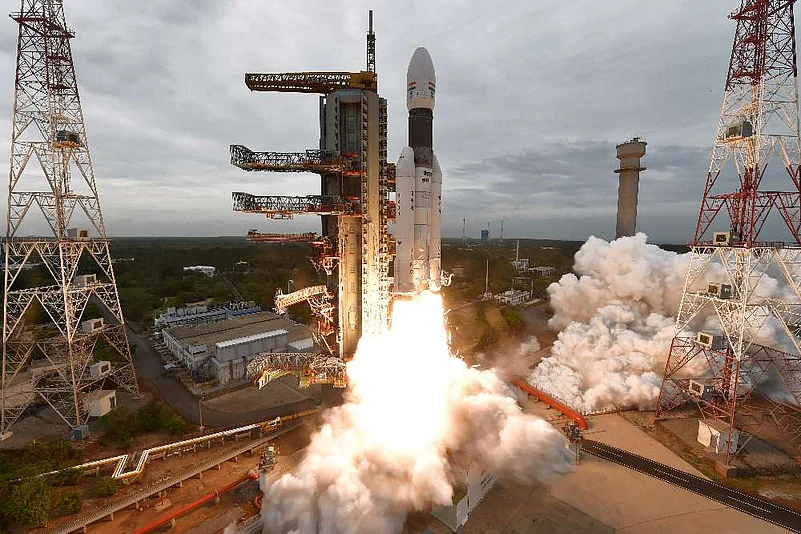The United States is all praise for Indian Space Research Organisation (ISRO) on its "incredible efforts" to soft-land Chandrayaan-2 lander "Vikram" on the south pole of the moon, a region never explored before by any country.
In a tweet on Saturday, the US' Bureau of South and Central Asian Affairs (SCA) congratulated the leading Indian space agency, saying, "The mission is a huge step forward for India and will continue to produce valuable data to fuel scientific advancements."
It further expressed confidence that India would achieve its "space aspirations."
India's attempt to land "Vikram" on the lunar surface suffered a last-minute setback when the lander lost communication with ground stations. India was moments away from scripting history. That the landing wasn't an easy task, something even ISRO chief Dr K Sivan repeatedly mentioned, has been acknowledged by world's top space agency NASA too.
NASA said that ISRO's attempt to soft-land Vikram module on the lunar South Pole has "inspired" it and the US space agency is looking forward to exploring the solar system with its Indian counterpart.
"Space is hard. We commend ISRO's attempt to land their Chandrayaan2 mission on the Moon's the South Pole. You have inspired us with your journey and look forward to future opportunities to explore our solar system together," NASA said in a tweet on Saturday.
Former NASA astronaut Jerry Linenger told PTI on Saturday that the lessons learnt from India's "bold attempt" too soft-land Chandrayaan-2's Vikram module on the lunar surface will help the country during its follow up missions.
"We should not be too discouraged. India was trying to do something very, very difficult. In fact, everything was going as planned as the lander came down," Linenger said.
According to NASA, only half of the lunar missions involving landing on moon surface have succeeded in the last six decades.
There have been a total of 109 lunar missions from 1958, out of which 61 were successful, says the US space agency's 'Moon Fact Sheet'.
As many as 46 missions involved landing on the lunar surface, including the landing of the rover and sample return. Out of these, 21 were successful, while two were partially successful.
Sample return means a mission that involves collecting and returning samples to earth. The first successful sample return mission was Apollo 12 of the US launched in November 1969.
From 1958 to 1979, only the US and the USSR (now Russia) launched Moon missions. In these 21 years, the two countries launched 90 missions. There was a lull in the decade that followed with no lunar missions from 1980-89.
Japan, the European Union, China, India and Israel have been late entrants.
The first lunar soft landing and first pictures from the lunar surface came from Luna 9, launched by the USSR in January 1966.
The Apollo 11 mission was the landmark mission through which humans first stepped on the lunar surface. The three-crew mission was headed by Neil Armstrong.
From 2009-2019, ten missions have been launched of which five have been sent by China, three by the US, and one each by India and Israel.
Even the US media, including The New York Times (NYT) and the Washington Post, have lauded India's "engineering prowess and decades of space development".
"While India may not have stuck the landing on its first try, its attempt highlighted how its engineering prowess and decades of space development have combined with its global ambitions," a report in NYT report said.
"The partial failure of the Chandrayaan-2 mission would delay the country's bid to join an elite club of nations that have landed in one piece on the moon's surface," it said.
The Washington Post in its headline "India's first attempt to land on the moon appears to have failed" said the mission had been a source of "immense national pride".
(With inputs from PTI)
















